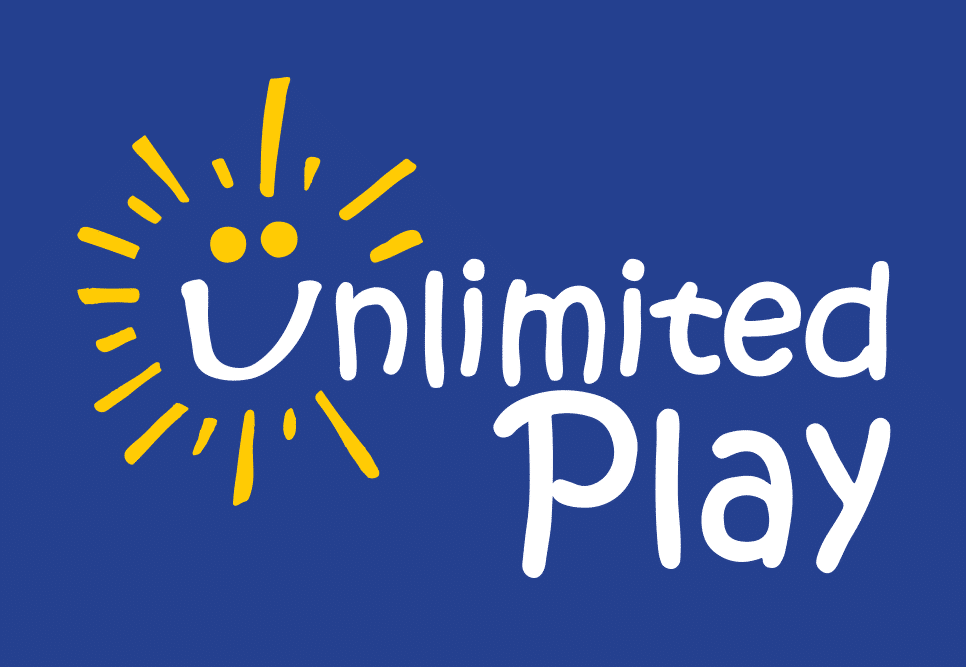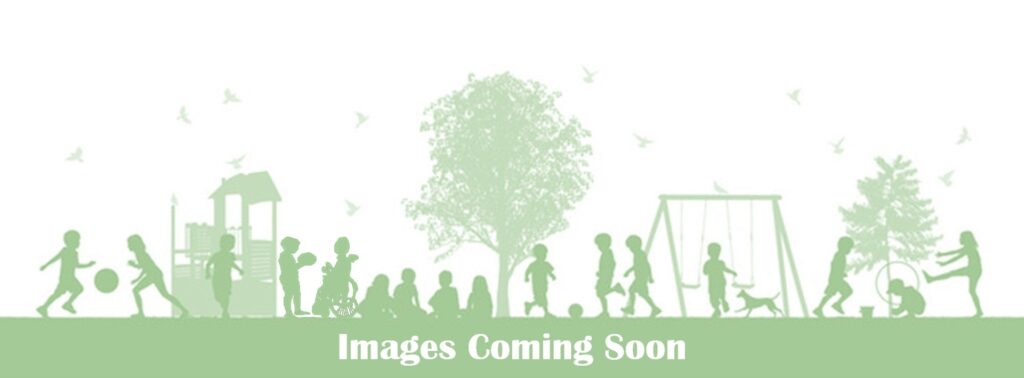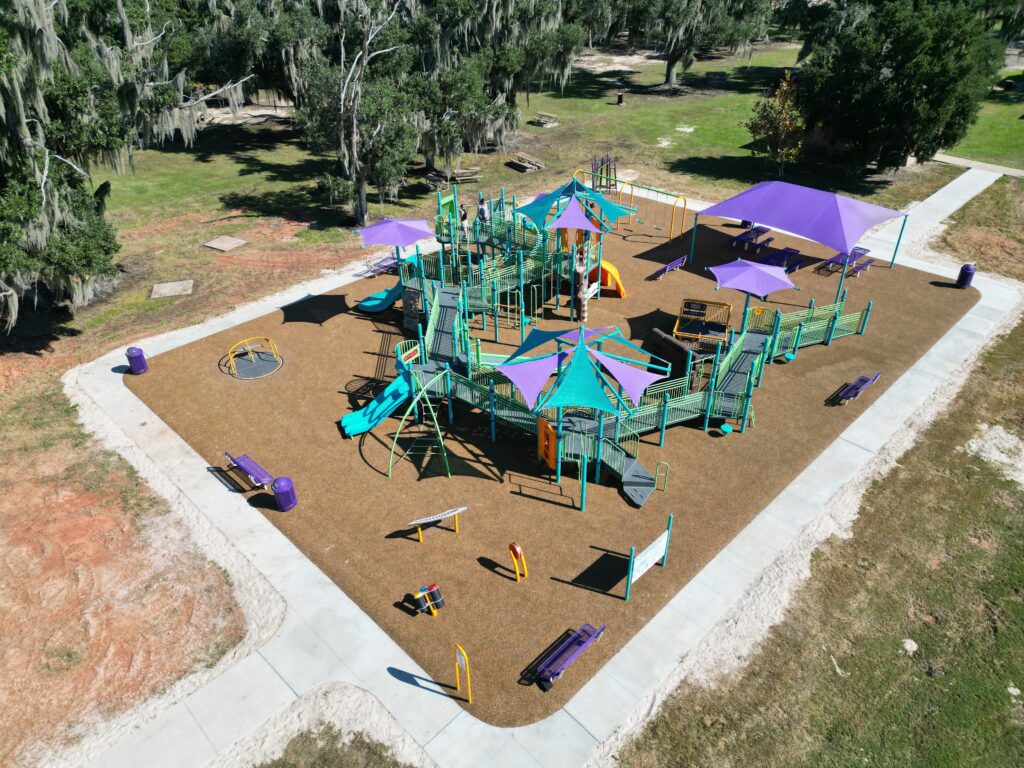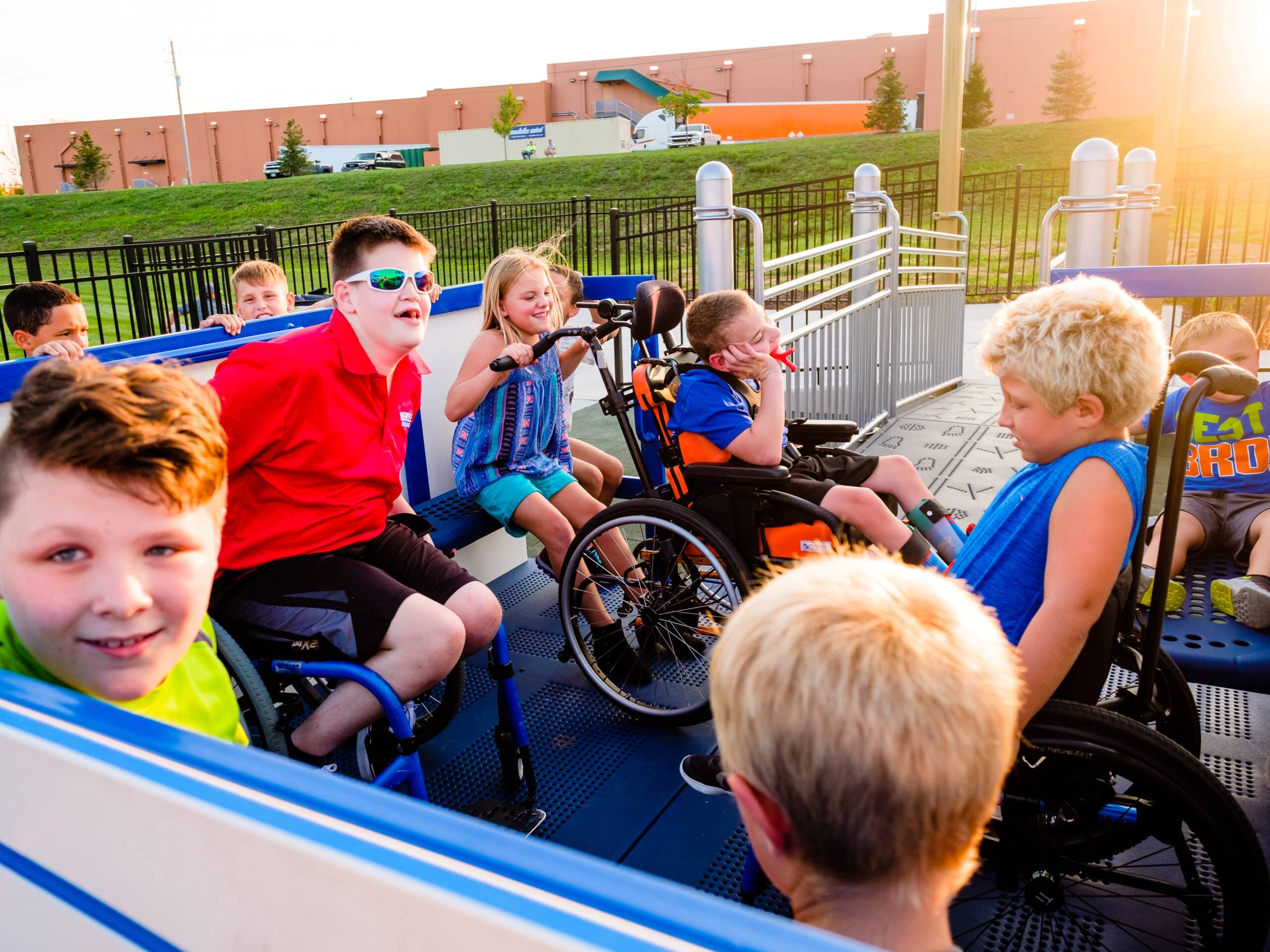


Why Playgrounds Matter
Play is a critical part of EVERY person’s social, emotional, cognitive and physical development.
Unfortunately, most playgrounds do not offer children with disabilities and critical illnesses the opportunity to play, exercise and engage with their peers in the same way other children can. In fact, there are only a small percentage of fully accessible playgrounds in the U.S., and these are insufficient to serve more than 70 million Americans living with some form of disability.
An inclusive playground is specifically designed to remove physical and social barriers so all children and families can play together — and that’s why playgrounds are so important to what we do at Unlimited Play. While we have grown to offer consulting for all types of recreation and play spaces, playgrounds will always be our foundation and the heart of our mission!
Benefits of Inclusive Play
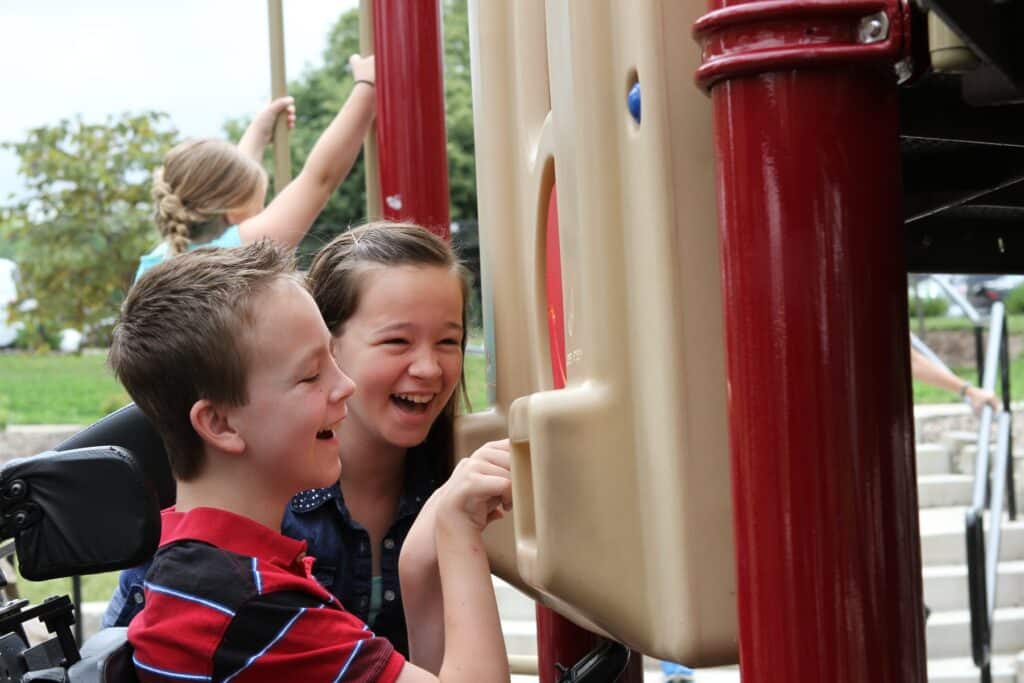
#1: Play is Therapy.
Play is powerful for people of ALL ages because it is both physical therapy and emotionally therapeutic. While the role of play in a child’s development is often underestimated, play fosters self-determination, sparks imagination and helps kids learn about the world around them. By exploring the playground, children exercise their muscles at their own pace and develop fine and gross motor skills.
#2: Breaking Social Barriers.
Simply put, kids need to play with other kids. Yet for so many kids with disabilities, their days are spent with parents, doctors, nurses, therapists and other adults. On fully accessible playgrounds, children with disabilities can swing, slide and climb with their friends — as well as with their siblings and parents — which is something they may have never experienced before.

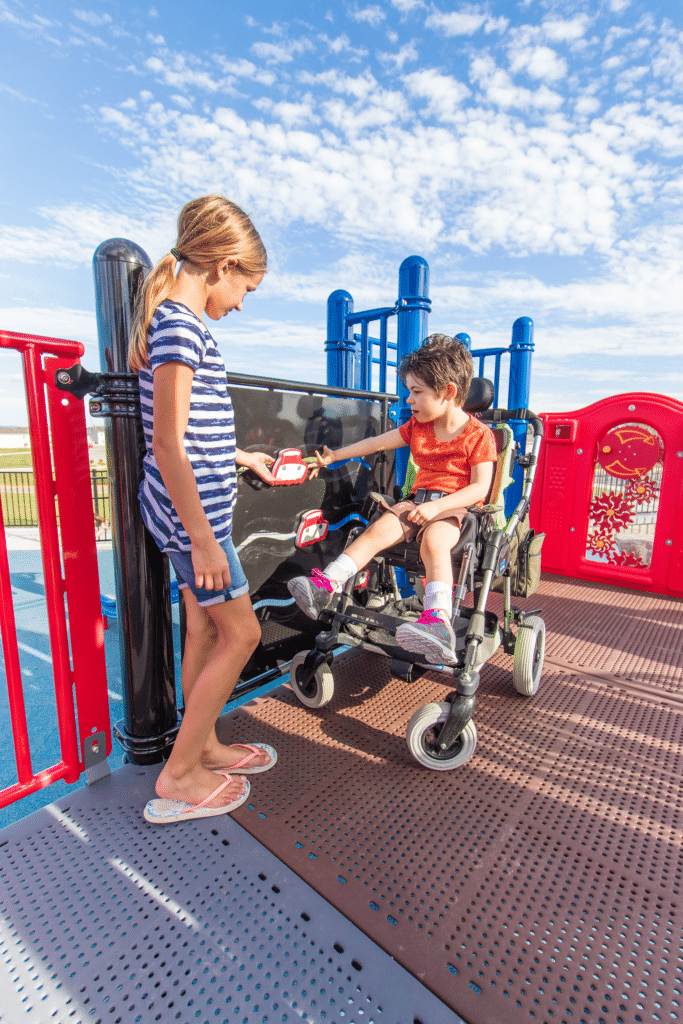
#3: Promoting Acceptance & Inclusion.
Teaching kids about respect and understanding are lessons that last a lifetime. ALL children learn and grow on accessible playgrounds by interacting with others who are different from them in some way: with different racial, ethnic and socioeconomic backgrounds, ages, abilities and families. We all have something we can learn from each other!
#4: Encouraging Physical Activity.
Playgrounds are an outlet for much-needed physical activity. Technology and devices keep children from going outside to explore, run and play. We know exercise and activity are key to lifelong health and wellness. Research has also shown that children with disabilities are greatly underserved in this area, because so many play and exercise spaces are not accessible to them.
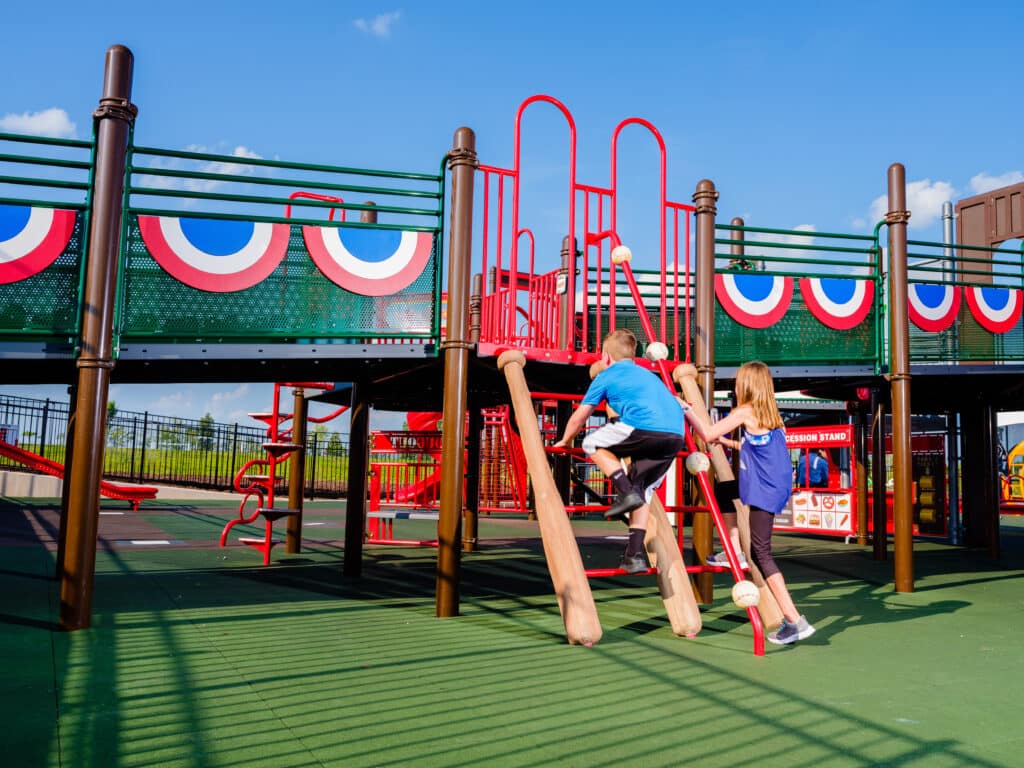
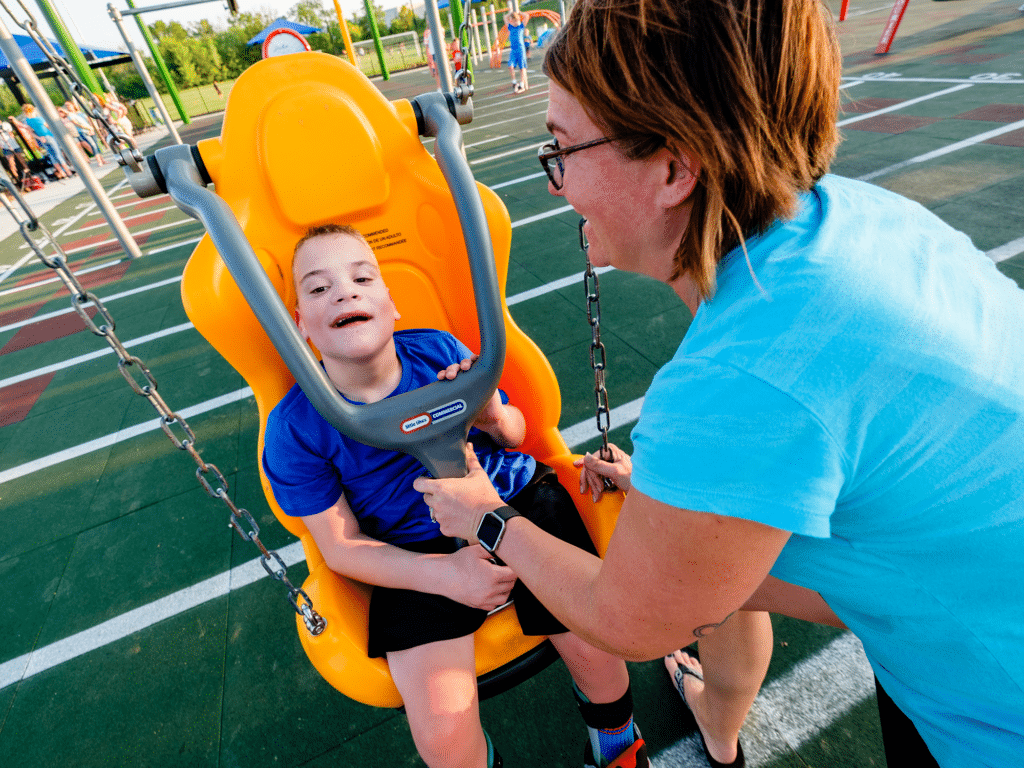
#5: Supporting Parents, Caregivers & Veterans.
Taking care of kids with or without disabilities is a full-time job, and parents and caregivers need time to recharge. Playgrounds provide an opportunity for adults to spend quality time with their children in a safe and supportive environment — along with a place to rest and connect with other adults, including veterans with disabilities who also benefit from inclusive design.
#6: Bringing Communities Together.
Unlimited Play is rooted in a community engagement model. Playground projects involve people from across the community, often from start to finish. Businesses, government entities, schools, places of worship, service clubs and other organizations invest their time and treasure into these playgrounds knowing that local families will have FREE access to play for years to come.
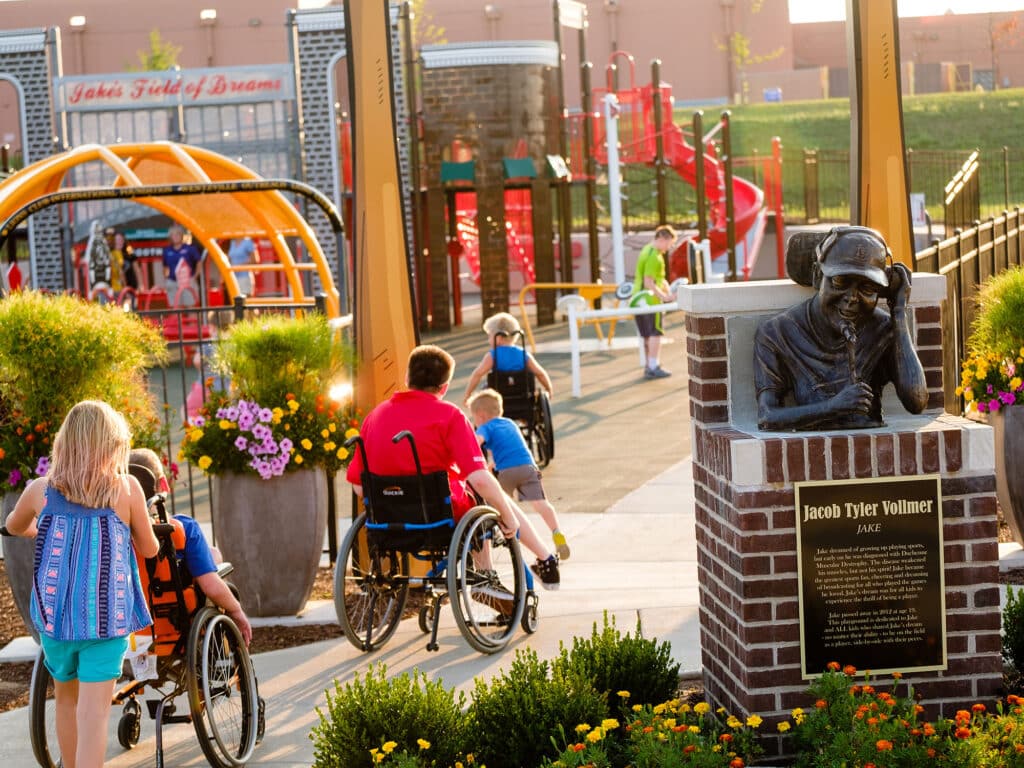
Support inclusive play with a donation to Unlimited Play.

INCLUSIVE DESIGN: CREATING FOR ALL ABILITIES.
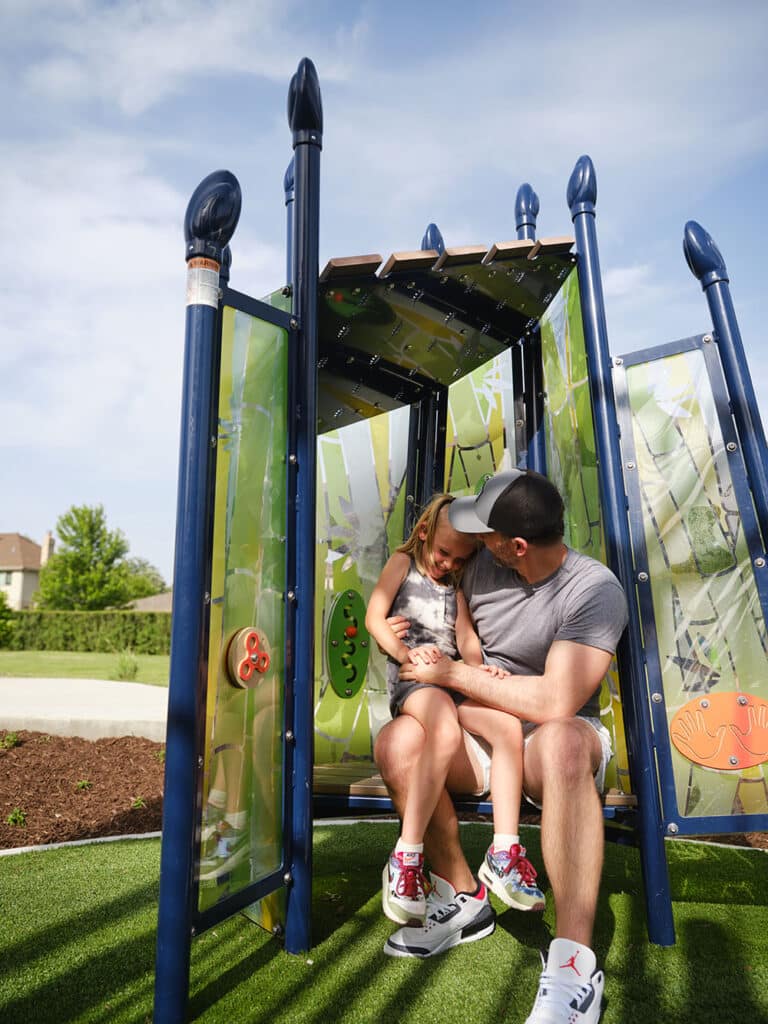
AUTISM
Inclusive playgrounds provide a dynamic environment where children with autism can engage in sensory-rich play, develop social and communication skills, improve physical fitness, regulate emotions, and foster cognitive development. Many children with autism experience sensory processing differences, where they may be over-sensitive or under-sensitive to sensory stimuli. Inclusive playgrounds provide opportunities for social interaction in a less structured setting, allowing children with autism to engage with peers at their own pace.
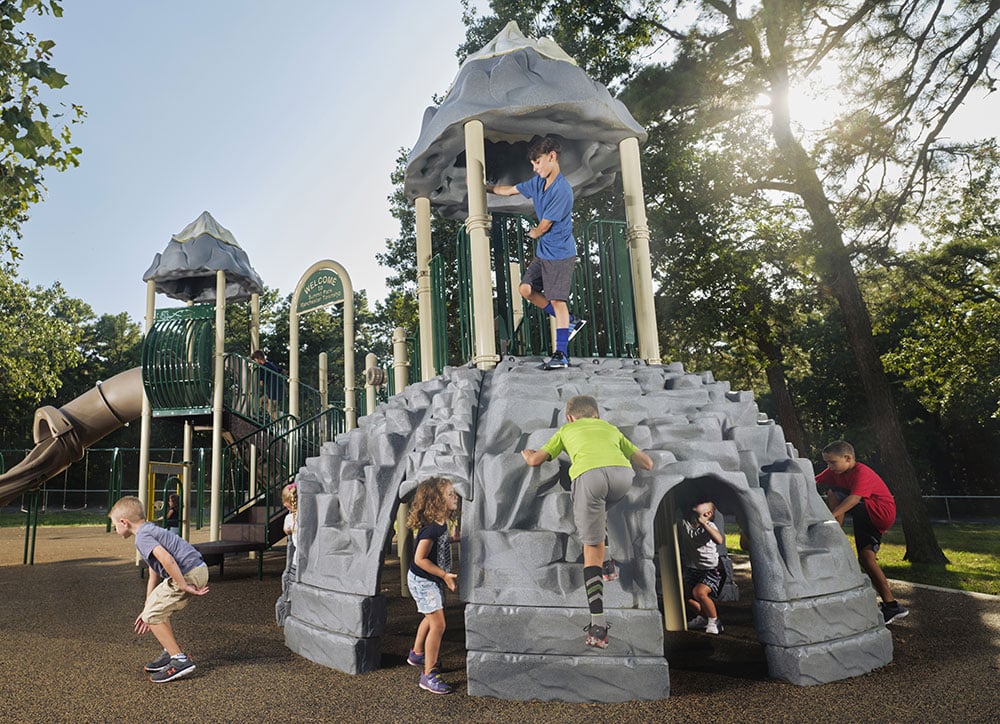
VISUAL IMPAIRMENT
Inclusive playgrounds incorporate tactile play elements, providing opportunities for children with visual impairments to explore and interact with their environment through touch, promoting sensory stimulation and spatial awareness. The playgrounds also include auditory features that can provide cues and feedback for children with visual impairments, helping them navigate the playground and engage in sensory-rich experiences.
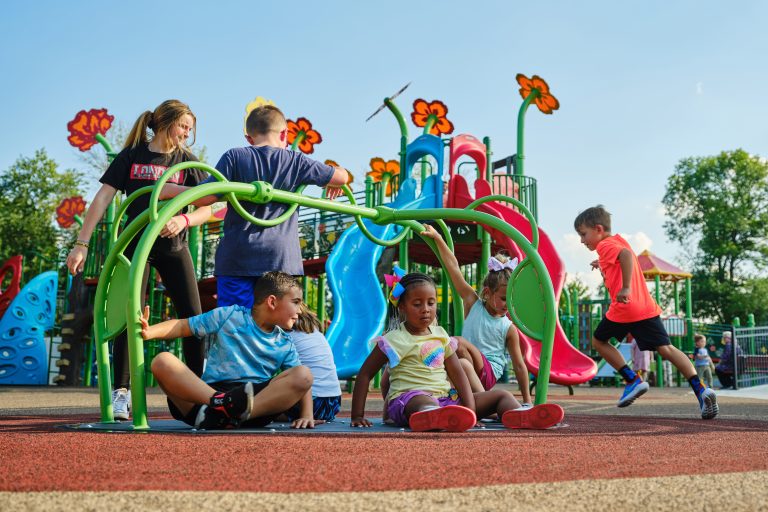
ORTHOPEDIC IMPAIRMENT
Inclusive playgrounds are designed with accessibility in mind. They feature ramps,
smooth surfaces, and wide pathways that allow children with orthopedic impairments to navigate the playground safely and independently. These accessible play structures ensure that children with mobility challenges can fully participate in play activities. Children with orthopedic impairments can interact with their peers, make friends, and engage in cooperative play activities, fostering social skills, communication, and a sense of belonging.
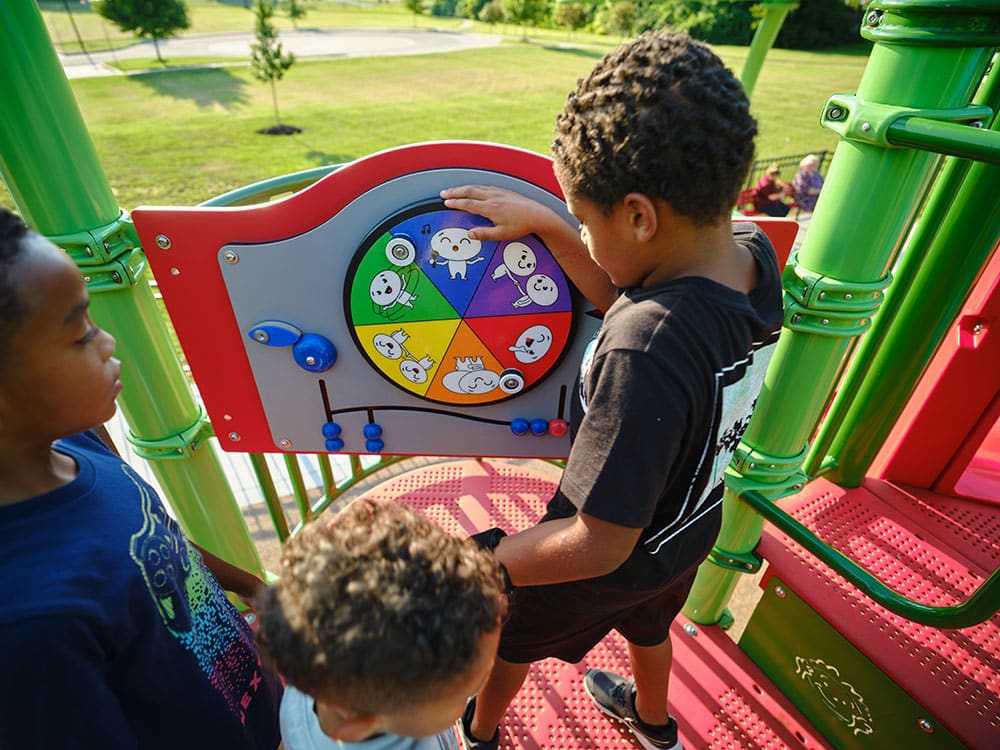
INTELLECTUAL DISABILITY
Inclusive playgrounds provide a supportive environment where children with intellectual disabilities can explore, learn, and succeed at their own pace. Positive experiences on the playground can boost self-esteem, confidence, and a sense of achievement, empowering children to overcome challenges and build resilience. Play experiences on inclusive playgrounds support cognitive development by encouraging problem-solving, creativity, and imaginative play. Children with intellectual disabilities can practice decision-making, spatial reasoning, and social problem-solving skills through play, promoting cognitive growth and development.
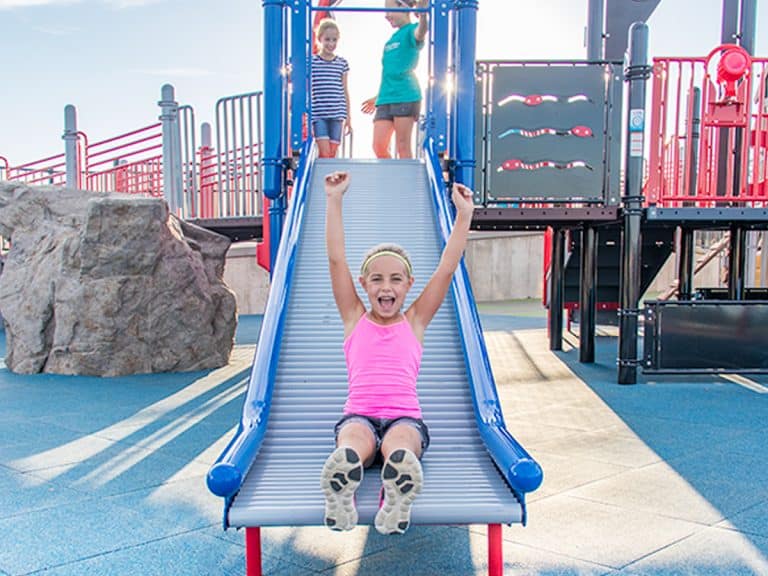
HEARING IMPAIRMENT
Inclusive playgrounds incorporate a variety of visual and tactile play elements that appeal to children with hearing impairments. Bright colors, contrasting textures, and interactive panels provide sensory stimulation and encourage exploration and engagement without relying on auditory cues. Many inclusive playgrounds include signage, pictograms, and visual cues that communicate play instructions, safety rules, and directional information. This visual communication is beneficial for children with hearing impairments who rely on visual cues and sign language to understand and navigate their surroundings.
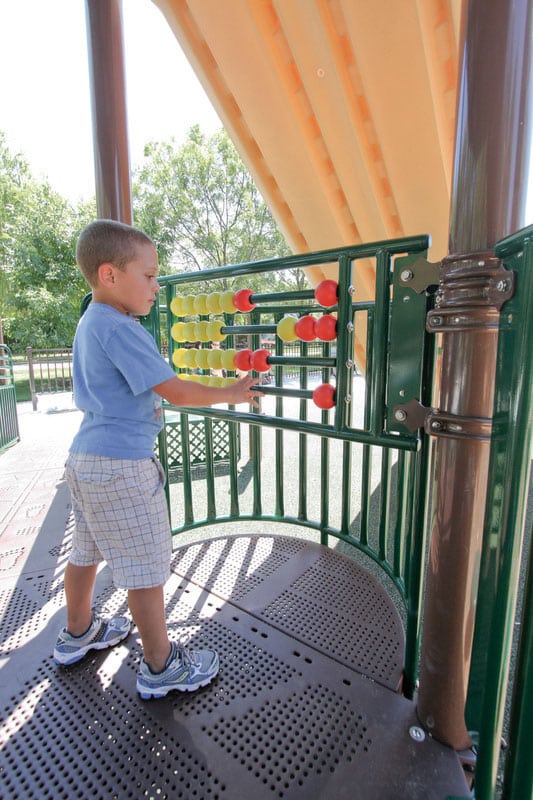
Abacus Reach Panel: A tactile panel that builds focus, sequencing, and problem-solving skills through play.
LEARNING DISABILITY
Inclusive playgrounds offer opportunities for children with learning disabilities to practice social skills such as communication, cooperation, and turn-taking. These features provide opportunities for children to learn and practice literacy, numeracy, and other academic skills in a hands-on and engaging way. Children can develop confidence, build friendships, and improve social competence by interacting with peers in a supportive and inclusive environment.
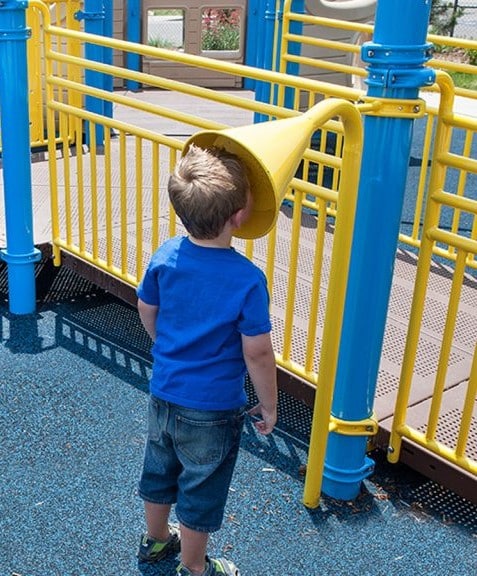
Talk Tube: A sound powered tool that encourages kids to speak, listen, and grow their communication skills
SPEECH/LANGUAGE DISABILITY
Inclusive playgrounds accommodate various modes of communication, including non-verbal communication such as gestures, facial expressions, and body language. Children with speech and language disabilities can use alternative communication methods to interact with peers and participate in play activities effectively and in a fun way. Children with speech and language disabilities may be motivated to imitate language and communication skills, learn new vocabulary, and practice social interaction strategies.
